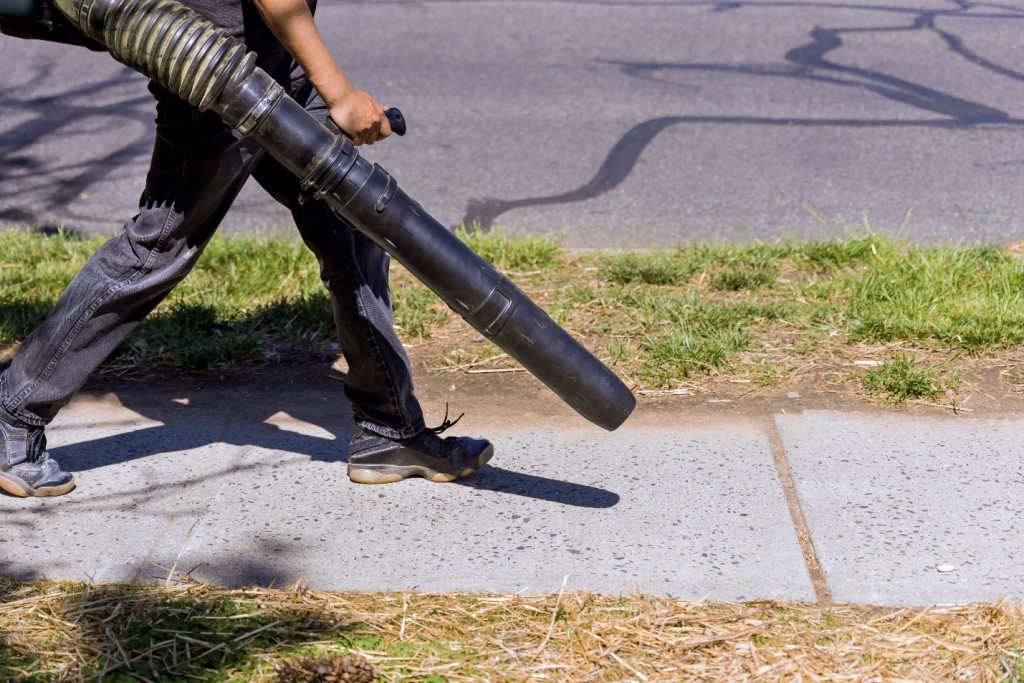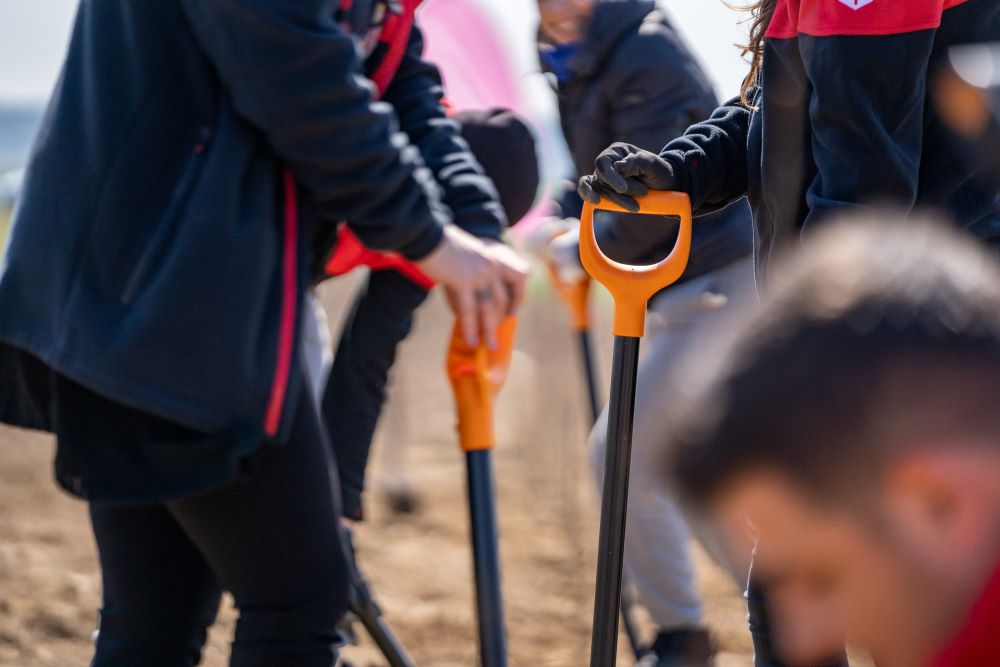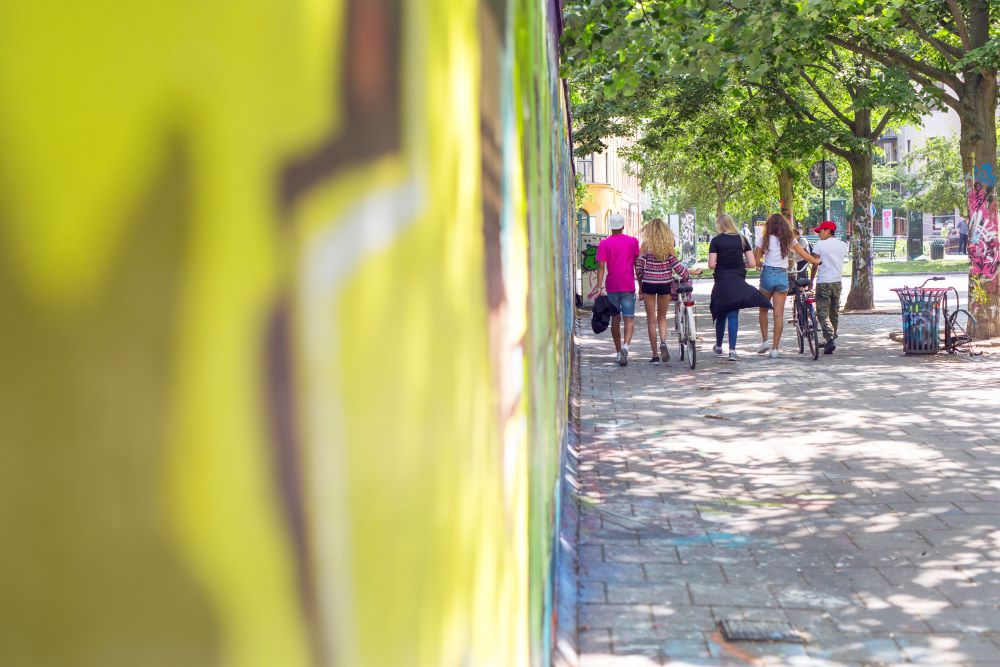Embracing Autumn’s Natural Symphony: The Shift Away from Leaf Blowers
For centuries, autumn has been a time of natural renewal, where the cascading leaves enrich the earth, nurturing a diverse ecosystem of creatures and flora. This cycle of life has been a cornerstone of our environment, providing a habitat for various species and replenishing the soil with vital nutrients. However, this serene picture is often disrupted by the pervasive hum of leaf blowers, a modern convenience that has become a source of contention.

In recent years, the United States has seen an increasing use of leaf blowers, with approximately 11 million units in operation, each capable of producing gusts up to 200 miles per hour. This not only shatters the tranquility of our neighborhoods but also poses significant environmental and health risks. The noise pollution alone has prompted communities nationwide to reconsider the use of these machines, leading to the implementation of restrictions and outright bans in several cities, including Washington, D.C., Miami Beach, Florida, and Evanston, Illinois. California is even poised to prohibit the sale of gas-powered leaf blowers, signaling a broader trend towards quieter, more sustainable yard maintenance practices.
The push for these bans gained momentum during the pandemic lockdowns of 2020, as people working from home became acutely aware of the disruptive noise, overshadowing the natural sounds of their surroundings. This newfound appreciation for tranquility has bolstered community efforts to regulate the use of leaf blowers, with over 200 towns now enforcing some form of restriction.
Beyond the noise, the environmental impact of gas-powered leaf blowers is staggering. Studies have shown that an hour’s use of one of these machines emits pollutants equivalent to driving a car across vast distances. This pollution is not only harmful to our air quality but also contributes significantly to carbon emissions. The antiquated two-stroke engines used in many leaf blowers are notably inefficient and dirty, releasing a considerable amount of unburned fuel into the atmosphere.
Municipalities grappling with these issues are exploring alternatives and transitional strategies. Winter Park, Florida, for instance, has introduced a temporary waiver on fines related to its ban on gas-powered leaf blowers, aiming to ease the transition to electric models. This approach reflects a broader recognition of the challenges faced by landscaping businesses and residents in adapting to new

Despite the higher initial costs and operational adjustments required for electric leaf blowers, the benefits—reduced noise pollution and a lesser environmental footprint—underscore a growing commitment to healthier, more sustainable communities. This shift not only aligns with broader environmental goals but also restores the natural ambiance of our neighborhoods, allowing the simple pleasures of autumn to be enjoyed without the backdrop of mechanical whine. As we move forward, embracing alternatives to gas-powered leaf blowers represents a small yet significant step towards harmonizing our lives with the rhythms of the natural world.
At the February 28 City Commission meeting, the first reading of the ordinance setting a referendum of the voters on the possible repeal of the internal combustion engine leaf blower ban was approved at first reading with a modification to the ballot language. Enforcement would also be delayed until June 1, 2025.
The city has also plugged into the electrification of many of its former gas-powered units.
- Parks & Recreation Department:
- 98% of leaf blowers including back packs & 100% of trimmers replaced
- 2 zero-turn lawn mowers
- 3 utility carts
- City’s vehicular fleet now includes:
- 16 electric vehicles (3 more on order)
- 16 hybrid vehicles
For more information on the leaf blower ban and resources for transitioning to eco-friendly alternatives, please access cityofwinterpark.org/sustainability or email the Natural Resources & Sustainability Department at sustainability@cityofwinterpark.org.
Winter Park’s decision to pass an ordinance banning gas-powered leaf blowers exemplifies the city’s progressive stance on environmental and community well-being. By prioritizing the health of its residents and the planet, Winter Park sets a commendable example for cities nationwide. This forward-thinking approach not only enhances the local living environment by reducing noise and air pollution but also contributes to the global effort to combat climate change. As we continue to cover this important transition, our next article will explore the new options and choices available to the residents of Winter Park, Florida, offering insights into how they can embrace and benefit from these eco-friendly changes. Stay tuned to learn more about how this community is leading the way towards a more sustainable future.
Park Ave Magazine
If you would like to be a part of the conversation with Park Ave Magazine, be sure to check out our newest blogs, articles, food reviews, and events going on in our local community. Park Ave Magazine is full of fun and exciting articles, art, photography, and trivia about the city and Central Florida. We want to thank everyone who has put time and effort into make Park Ave Magazine a household name. We encourage all of our local friends to do their part to keep us updated with information because we want you to tell us what you would like to see us cover.
With new events, articles, and information being released on a regular basis, sign up for our newsletter and stay in the loop with all the exciting news. Meet all the wonderful people that make Winter Park, Orlando, and the areas around Central Florida an incredible place to work, play, and live. Check it out yourself at https://parkavemagazine.com/




